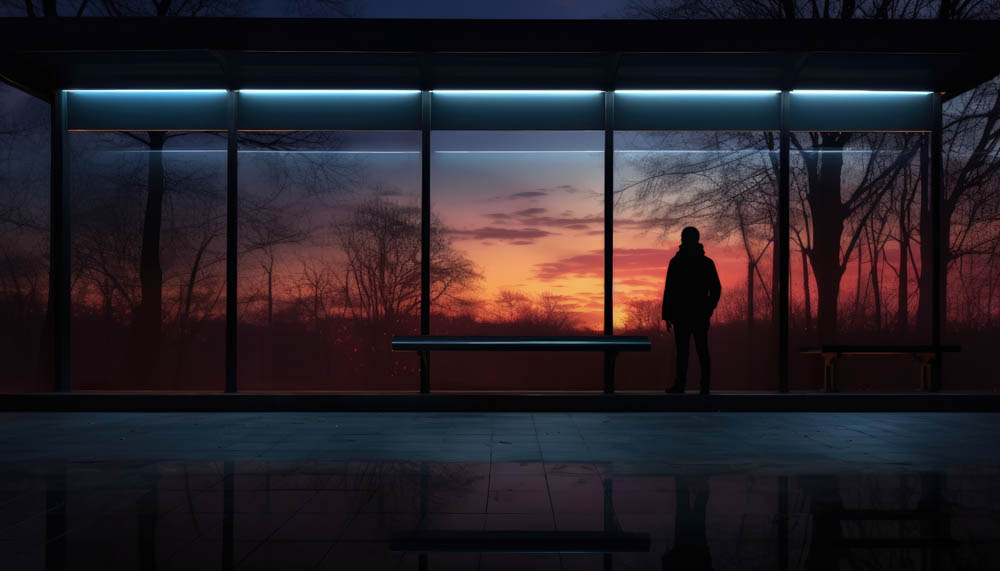
Contact Me Today
Gerard Dunning, Terrigal, NSW 2260, Australia
What's on your mind?
Fill out the form below and we'll get back to you.

A chilling psychological drama where reality and introspection collide
In the stillness of a desolate bus stop, two strangers meet in a haunting conversation that blurs the lines between reality and introspection. Martin, a man haunted by regrets and unresolved choices, is confronted by The Stranger, a figure whose unsettling calm unravels hidden truths. As the dialogue unfolds, the layers of Martin’s life are peeled back, revealing a man caught at the crossroads of his own existence.
With each scene, tension mounts, and the conversation takes on an almost otherworldly quality, exploring themes of identity, self-reflection, and the weight of unspoken fears. Subtle moments of levity offer brief reprieves from the psychological intensity, only to plunge the audience back into the raw and confronting depths of the human condition.
Ending with a shocking twist that leaves the audience questioning everything they’ve witnessed, The Last Stop is a gripping exploration of the choices we make—or fail to make — and the shadows that linger in their wake.
Perfect for fans of intimate, thought-provoking theatre, this one-act play will resonate long after the final curtain falls.
Adapted for Radio, Read and Produced by Gerard Dunning. Narrated by Rebecca Flint
The Last Stop emerges from my work counselling men grappling with mental health challenges. Over time, I've witnessed how many find themselves at a crossroads, where life feels devoid of meaning, and the allure of ending it all seems like the simplest escape. Contrary to popular belief, this descent isn't always marked by complexity or overt turmoil; often, it's a quiet, pervasive emptiness that erodes one's sense of purpose.
This play delves into that void — a stark exploration of the final destination many men reach when hope diminishes. It's a close-up examination of the psychological transition that occurs in those haunting moments between life and death.
Who is The Stranger? The script refers to The Stranger as "them". We don't know for sure. Maybe Martin's father, his Mother, or even a younger version of himself. The Stranger is a projection of Martin's inner emotions and self-image.
How do Scenes Transition? Scenes flow. However some might be punctuated with some street activity, a passing car, a dog barking, a person walking by. There is a stillness in the scene that complements The Stranger, but contrasts the growing emotions from Martin.
This work is licensed under the Creative Commons Attribution-NonCommercial-ShareAlike 4.0 International License.
Download "The Last Stop" ScriptSpecial thanks to Gavin Critchley, Debbi Clarke, Ron Baker and Rebecca Flint for their support in this project.
This work is licensed under the Creative Commons Attribution-NonCommercial-ShareAlike 4.0 International License.
Please send performance details to: [email protected]
For further clarification or to request commercial use rights, contact the author directly.
By proceeding with any performance of Plays by Gerard Dunning, you agree to adhere to the terms of this license.
Thank you for visiting my website. I look forward to collaborating with you.
Make a Payment via Square